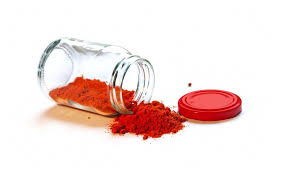It’s finally that time of the school year whenwhere the AP, whichthat generally standsnormally stands for advanced placement, takes on the new meaning of advanced pain. Towards the end of the school year, students across the nation start preparing for the grueling College Board tests for variousall across the nation start preparing for the grueling College Board tests for a variety of subjects. While students at GHS do the same, one key difference isthere is one key difference: the AP Mock Exams that our students take as their final. While there are many positives to taking these tests beforeprior to the actual College Board test, there are also some negatives, so let’s get to the heart of the discussion in light of AP season.
PROS
In case you’ve been living under a rock for your entire high school career, here’s a brief explanation of an AP mock examJust in case you’ve been living under a rock for your entire high school career, here’s a brief explanation of what an AP mock exam is. If a student is in AP Calculus, for example, the College Board test is on May 13th, but they will take their GHS final exam on May 2nd, a little under two weeks beforehand. This protocol isn’t standard for every AP student across the US, in fact, many surrounding schools don’t take the same approach. Now that we know what an AP mock exam looks like and how unique they are to GHS, we’ll get onto the pros in taking them.
The biggest positive behind taking an AP mock exam before the actual College Board test, and the reason GHS chooses to do them, is that they teach you what the real experience will be like. Prior to the AP mock exam, most students have no idea how to pace themselves between three essays or 40+ multiple-choice questions,look like. Prior to the AP mock exam, most students have no idea how to pace themselves between three essays or 40 plus multiple choice questions and this mock exam gives them the opportunity to learn.
“On the final, I didn’t pay attention to my time and by the time I had ten minutes left, I had only answered three of them [SAQ’s ]. However, when I took the real exam, I was hyper-awarehyper aware of how much time I had left and couldwas able to pace myself,” said Adrianna Barnes ‘24 on the AP World History.
After students learn effective pacing for the actualreal exam within the next two weeks, they can begin to look at their mistakes on the practice test. Teachers work quickly to grade these exams over the few days after the mock exam to pass back to their students so they can see both their predicted scoresscore and what topics they succeed and struggle in. Obtaining this knowledge beforeprior to the eventual College Board test shows students what units to prioritize while studying, which is an advantage that would have remained unknown without the mock exam.
Now that the students have learned how to both pace themselves in both the multiple choice and writing sections and in-depthindepthly studied their weakest units, the resultresultant is an immediate confidence boost. Regardless of whether or not the student knows all of the content and material, they are likely to feel better prepared for the exam than they would have been without the initial practice run-throughrun through.
CONS
Despite the many positives to taking the AP mock exams as listed above, someone can alwaysthere’s always someone who can poke holes in the given circumstances and exploit the flaws. So, toin order to truly grasp both sides of the situation at hand, let’s play devil’s advocate for just a few points.
The most obvious downside of the AP mock exam is the fact that it’s taken under two weeks beforeprior to the actual test. While two labor-gruelinglabor grueling tests are somewhat manageable in such a short time, this starts to get outrageous when students takespan of time, this starts to get outrageous when students are taking multiple AP courses. The three AP classes that the student enrolled in at the beginning of the school year with the thought of taking only three College Board tests in May just turned into a month of unexplainable pain as the number of strenuous tests turned into six.
“It makes me feel like I have a lot on the line because I don’t want to fail the class and waste my parents’parents money on manya lot of exams. Not to mention that I spend a lot of my time playing soccer and lacrosse which makes it stressful and hard to balance,” said Sofia Durfee ‘24.
Stress is aa completely valid reason for students to oppose the AP mock exams, but the AP teachers are also met with their own version of stress duringat this time of the school year. For one, the quick turnaround grading time of these practice exams is very short, and many of the teachers have to grade several multiple choice questions for a large group of students along with any form of short or long written responses that come with the given exam. Another aspect of these exams that affects the teachers is the times that they occur. Considering the length of these tests, four hour time periods are blocked off each day for the course being tested. This is detrimental to the students that take multiple AP classes as they are in and out of the classroom at the end of May, not only providing a more significantgreater distraction to the teacher’s classes, but missing valuable information pertaining to their other AP courses.
After consideringtaking into consideration the mixed emotions of both students and teachers in the months of April and May, it’s time to talk about the actual grading process behind the exams. AP tests created by the College Board are supposed to be highlyextremely challenging and test the student’s knowledge on every aspect of the course. Given this characteristic of the actual AP exams, the mock exams given at GHS are authentic to this style and test the students similarlyin a highlyan extremely similar manner. While this is seen to be helpful for the students, the downside comes from the fact that they appearsappear as the student’s final grade in the course. While sometimes the mock exam gets a curve to counteract the low pass rate of the AP US History exam, for example, this is not always the case, and some students get a poor final grade to be factored into their final class grade.
AP exams will always have their positives and negatives, awhichas they are a true testament to a college education. Despite this, the College Board and their opinions on your writing in the AP English Language and Composition synthesis essay dodoes not define you. This is your healthy reminder to take your AP tests seriously and try your best, but in the end, whatever score you get doesn’t define you, and success looms in all areas of your life;, just keep looking.


















